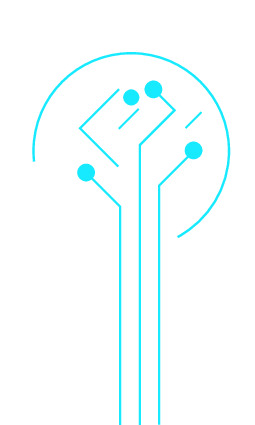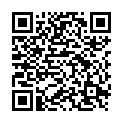|
|
|
| Module code: NE2220.NSN |
|
|
2V+2P (4 hours per week) |
|
5 |
| Semester: 1 or 2 |
| Mandatory course: no |
Language of instruction:
English |
Assessment:
Presentation (pass/fail)
[updated 05.11.2024]
|
NE2220.NSN (P213-0203) Neural Engineering, Master, ASPO 01.04.2020
, optional course
NE2220.NSN (P213-0203) Neural Engineering, Master, SO 01.10.2025
, optional course
|
60 class hours (= 45 clock hours) over a 15-week period.
The total student study time is 150 hours (equivalent to 5 ECTS credits).
There are therefore 105 hours available for class preparation and follow-up work and exam preparation.
|
Recommended prerequisites (modules):
None.
|
Recommended as prerequisite for:
|
Module coordinator:
Prof. Dr. Robert Lemor |
Lecturer: Prof. Dr. Robert Lemor
[updated 27.11.2023]
|
Learning outcomes:
Die Studierenden kennen die technischen Grundlagen der Ultraschallbildgebung und Ultraschalltherapie. Sie können verschiedene Einsatzgebiete der Ultraschalldiagnostik und Therapie in der Neurologie erläutern und sind mit aktuellen Forschungsthemen in diesen Feldern vertraut.
The students know the technical basics of ultrasound imaging and ultrasound therapy. They can explain various areas of application of ultrasound diagnostics and therapy in neurology and are familiar with current research topics in these fields.
[updated 05.11.2024]
|
Module content:
Inhalte:
• Technisch physikalische Grundlagen der Ultraschallbildgebung - Physik des Ultraschall, Transducer, Systeme und Bildgebungsmodi z. Bsp.: B-Mode, Doppler, CFD, THI, Kontrastmittel – Artefakte & Sicherheitsapsekte
• Technisch physikalische Grundlagen der Ultraschalltherapie - Physik, Transducer, Systeme und Anwendungen z. Bsp. Sonothrombolyse, HIFU, LIFUS – Artefakte & Sicherheitsaspekte
• Medizinische Grundlagen: Diagnostische Anwendungen der in der Neurologie - Diagnostik und Monitoring von Vasospasmen, Mikroemboliedetektion, Sonografie in der neurologischen Notfall- und Intensivmedizin - Grundlagen, vaskuläre Schlaganfalldiagnostik und Monitoring des erhöhten intrakraniellen Druckes, Hirntoddiagnostik und Untersuchung der zerebralen Autoregulation, Hirndruckmonitoring via Orbitasonografie, Point of Care Ultraschall (POCUS)
• Medizinische Grundlagen zu therapeutischen Ultraschall Anwendungen in der Neurologie - Transkranielle Sonographie des Hirnparenchyms: Update zu klinisch relevanten Anwendungen, Unilaterale fokussierte Ultraschall-Subthalamotomie bei Parkinson-Krankheit, LIFUS
• Aktuelle Forschungsthemen: Künstliche Intelligenz in der Echokardiographie und in der Orbita Sonographie, HIFU, LIFUS
Content:
• Technical & physical fundamentals of ultrasound imaging – physics of ultrasound, transducers, systems and imaging modes e.g. E.g.: B-mode, Doppler, CFD, THI, contrast medium – artifacts & safety aspects
• Technical& physical fundamentals of ultrasound therapy – physics, transducers, systems and applications e.g. Sonothrombolysis, HIFU, LIFUS – artifacts & safety aspects
• Medical basics: Diagnostic applications in neurology – diagnosis and monitoring of vasospasms, microembolism detection, sonography in neurological emergency and intensive care medicine – basics, vascular stroke diagnosis and monitoring of increased intracranial pressure, brain death diagnosis and examination of cerebral autoregulation, intracranial pressure monitoring via orbital sonography, Point of Care Ultrasound (POCUS)
• Medical basics of therapeutic ultrasound applications in neurology – Transcranial sonography ft he brain parenchyma: Update on clinically relevant applications, unilateral focused ultrasound subthalamotomy in Parkinson‘s disease, LIFUS
• Current research topics: Artificial intelligence in echocardiography and orbital sonography, HIFU, LIFUS
[updated 05.11.2024]
|
Teaching methods/Media:
Board, Slides, Ultrasound Workshop
[updated 05.11.2024]
|
Additional information:
Parts of the ultrasound workshop will be held at the University Hospital in Homburg Saar.
[updated 05.11.2024]
|
Recommended or required reading:
Thomas L. Szabo , Diagnostic Ultrasound Imaging: Inside Out, 2nd Edition - December 5, 2013, Hardback ISBN: 9780123964878 , eBook ISBN: 9780123965424
Harrer JU et al. Neurosonografie in der… Ultraschall in Med 2012; 33: 218–235
Caldas et al. J Anesth Analg Crit Care (2022) 2:55 https://doi.org/10.1186/s44158-022-00082-3
Uve Wallter Perspectives in Medicine (2012) 1, 334—343
Neurology® 2023;100:e1395-e1405. doi:10.1212/WNL.0000000000206771
[updated 05.11.2024]
|


